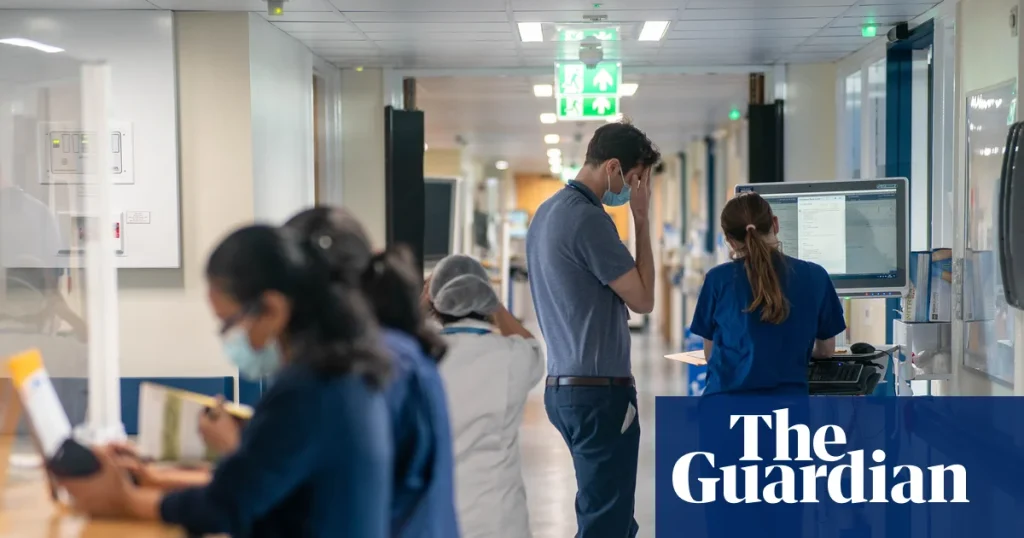A tool that uses artificial intelligence to help diagnose men with prostate cancer and guide decisions about treatment is to be tested in NHS hospitals, researchers have announced.
The £1.9m Vanguard Path study, funded by Prostate Cancer UK and led by researchers at the University of Oxford, is expected to last three years and will test an AI tool called the ArteraAI Prostate Biopsy Assay. In total, biopsies from more than 4,000 men will be used.
The tool, which analyses digitised biopsy images to produce a personalised risk score, has already been shown in clinical trials to identify which men with high-risk prostate cancer would be most likely to benefit from the drug abiraterone.
However, trials in the US have suggested it could also be used for less aggressive forms of prostate cancer to predict which men are most likely to benefit from having hormone therapy in addition to radiotherapy.
In addition, studies have suggested the tool can help identify which patients can be monitored without the need for immediate treatment.
Dr Matthew Hobbs, director of research at Prostate Cancer UK, said: “If and when this gets implemented, you could use one tool irrespective of where you are on the aggressiveness scale, to make a very clinically and life-enhancingly important decision for each of those men.”. He added that the tool was already being widely used in the US.
The new study will first use prostate biopsy samples from men who have already been diagnosed and treated for prostate cancer, and have suitable follow-up data, to explore whether the predictive prowess of the tool is seen when applied to UK patients.
The tool will then be tested at three sites – North Bristol NHS trust, Oxford University hospitals NHS foundation trust, and NHS Greater Glasgow and Clyde – as men undergo the normal pathway for prostate cancer diagnosis.
“Biopsies will be analysed, the treatment choices will be made, and the man will start treatment. But at the same time, the NHS clinicians will be given a readout from this tool and asked: ‘If you had this, would you have recommended the same treatment or not?’” said Hobbs, adding that part of the trial would also explore to what extent the tool affected the time between diagnosis and treatment choice.
Experts say the hope is that the tool will eventually help reduce under- and over-treatment.
“A good outcome from this is that this tool is implemented in the NHS,” said Hobbs. However, for that to happen, he said, it had to be shown to be scientifically valid, cost-effective, and making a difference to treatment decisions.
Prof Gerhardt Attard, from University College London, who was involved in the study around abiraterone use but is not part of the trial, said the research was important as approaches often worked well in clinical trials.
“When you take that to the real NHS world, there are a number of challenges and differences that would inevitably arise and that’s what this study will address,” he said.
Ashley Dalton, the minister for public health and prevention, also welcomed the trial. “This groundbreaking research could be a huge step forward, demonstrating the power of technology to potentially transform lives and improve cancer outcomes,” he said.
“This is exactly why we’re investing in a digital NHS. By harnessing AI and moving beyond outdated systems, we can transform cancer care – diagnosing earlier, treating more effectively, and improving patient experience.”


